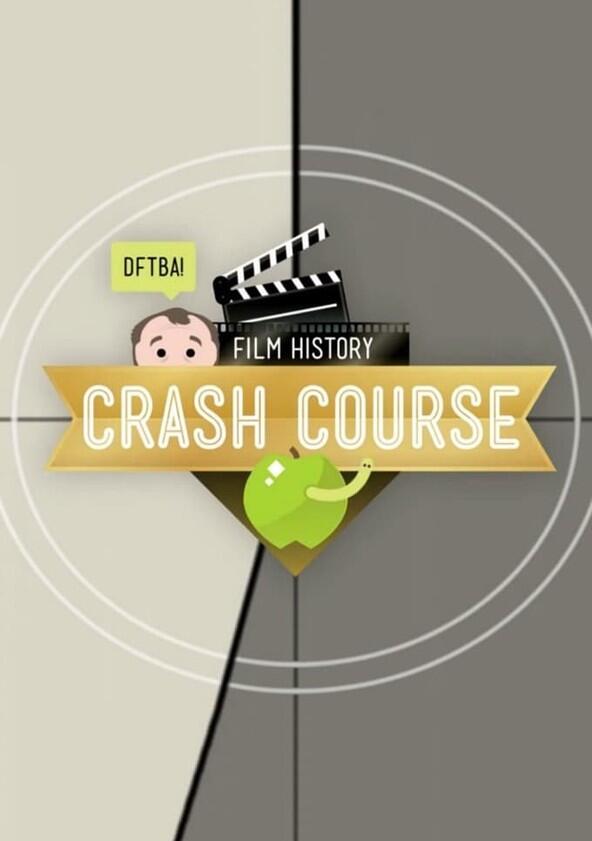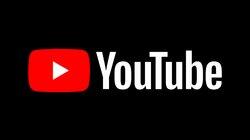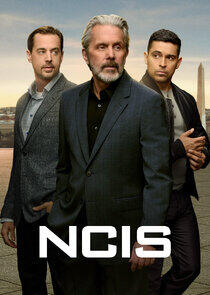Crash Course Film - Season 1

Season 1

Episodes

Film History: Movies are Magic
Well, they're not really "magic." Maybe "illusion" is a better way to say it. As we begin this journey of the history of cinema, we need to understand how movies trick our brains into even understanding that a movie is a movie. In this episode of Crash Course Film History, Craig takes us down the road of the very first inventors of motion pictures.

Film History: The First Movie Camera
After serial photography became a thing, it wasn't long before motion pictures started to develop. And, at the front of that development was Thomas Edison, who you may know as an inventor and business person. In this episode of Crash Course Film History, Craig talks to us about Edison, his assistant W.K.L. Dickson, and their inventions that pioneered motion pictures.

Film History: The Lumiere Brothers
As cinema started to take off, things like "single viewer" devices weren't going to cut it as the medium advanced. In this episode of Crash Course Film History, Craig talks to us about the Lumiere brothers, their invention of the Cinematographe, and the idea of projecting a movie to an audience.

Film History: Georges Melies - Master of Illusion
After the Lumiere brothers and Thomas Edison got the ball rolling with Vaudeville acts and Actualites, the time was coming for movie magic and fiction to make an appearance. The time was coming of filmmakers like Georges Melies and Alice Guy-Blache.

Film History: The Language of Film
In this episode of Crash Course Film History, we talk about the development of the language of films by filmmakers like Edwin S. Porter and his films; Life of an American Fireman and The Great Train Robbery.

Film History: The Birth of the Feature Film
Movies didn't always look like they do now. There was a period (kind of a problematic one) where movies transitioned from short novelties to big, epic, feature films. That's our focus this week as Craig talks to us about the birth of the feature film and the work of D.W. Griffith.

Film History: German Expressionism
We've spent a lot of time focusing on France and the U.S. as that's where a significant amount of both infrastructure and business models were initially set up for film. But there were other countries adding their own stories to the annals of film history. In this episode of Crash Course Film History, we're going to focus on Germany and how they got a bit expressive with film.

Film History: Soviet Montage
Russia went and had a revolution in 1917 and cinema was a big part of its aftermath. Even though film stock was hard to come by, we saw the first film school started, and the study of film became hugely important. Russian filmmakers started trying to understand the power of the cut itself, thus developing a theory of filmmaking based solely around the juxtaposition of images: Soviet Montage. In this episode of Crash Course Film History, Craig talks us through some of the filmic things going on in post-revolution era Russia.

Film History: The Silent Era
The Silent Era of Hollywood set a lot of things into motion in terms of how movies were made and sold. Big stars were one of the main ways studios tried to make their movies stand apart from one another and get the public to make choices at the cinema. But, this also gave a lot of power to those stars to command a lot of money. In this episode of Crash Course Film History, we take a look at the Silent Era of Hollywood and people like Charlie Chaplin.

Film History: Breaking the Silence
Nothing changed movies like the arrival of synchronous sound. NOTHING! Acting, directing, cinematography, and presentation all had to be rethought. Some studios were more quick to take on the challenge while others waited until the last moment. Some actors made graceful transitions while others struggled with the new format. But this was the big turning point and a major completion point to what movies would ultimately become.

Film History: The Golden Age of Hollywood
It's time for the glitz and the glamour of big motion pictures that helped keep American spirits up during and after the Great Depression. Sound was a huge change to motion pictures, but there were still a few technological innovations to come, like color and aspect ration. Today, Craig walks us through the Golden Age of Hollywood.

Film History: Independent Cinema
Hollywood was riding high until their formula got to be stale. In places like Italy and France (as well as other places in the world we'll talk about soon) filmmakers were starting to break out of the mold and make daring films that challenged the idea of what movies were and what audiences wanted. In this episode of Crash Course Film History, Craig takes us through the beginnings of independent cinema.

Film History: Home Video
As the New Hollywood gained steam in the late 70s and early 80s, another revenue stream opened its doors: home video. From Betamax to Laserdisc to Bluray to streaming services, home video revolutionized how we ingest movies. In this episode of Crash Course Film History, Craig gives us an overview of it all.

Film History: World Cinema - Part 1
The world is a big place and cinema isn't limited to just the U.S. and Europe. There are a lot of vibrant and influential film movements and cultures from all over the world. In this episode of Crash Course Film History, Craig talks to us a little about some of the big moments in Asian cinema; from Japan, to China, to India.

Film History: World Cinema - Part 2
Africa, the Middle East, and South America have their own vibrant film communities and filmmakers. From social and political commentary to experimental films, these regions have made some very important pieces of cinema over the last century. In this episode of Crash Course Film History, Craig talks us through some of these movies and movie makers.

Film History: Experimental and Documentary Films
It's Craig's last episode of Film and in it he's going to talk about weird stuff... and real stuff. Experimental and Documentary films could each take up their own Crash Course series. The different styles and intents of different filmmakers make each film unique. So let's settle in and have a look at how Experimental and Documentary films have evolved.
Recently Updated Shows

NCIS
NCIS (Naval Criminal Investigative Service) is more than just an action drama. With liberal doses of humor, it's a show that focuses on the sometimes complex and always amusing dynamics of a team forced to work together in high-stress situations. Leroy Jethro Gibbs, a former Marine gunnery sergeant, whose skills as an investigator are unmatched, leads this troupe of colorful personalities. Rounding out the team are Anthony DiNozzo, an ex-homicide detective whose instincts in the field are unparalleled and whose quick wit and humorous take on life make him a team favorite; the youthful and energetic forensic specialist Abby Sciuto, a talented scientist whose sharp mind matches her Goth style and eclectic tastes; Caitlin Todd, an ex-Secret Service Agent; and Timothy McGee, an MIT graduate whose brilliance with computers far overshadows his insecurities in the field; Assisting the team is medical examiner Dr. Donald "Ducky" Mallard, who knows it all because he's seen it all, and he's not afraid to let you know. From murder and espionage to terrorism and stolen submarines, these special agents travel the globe to investigate all crimes with Navy or Marine Corps ties.

Landman
Set in the proverbial boomtowns of West Texas, Landman is a modern day tale of fortune seeking in the world of oil rigs. The series is an upstairs/downstairs story of roughnecks and wildcat billionaires fueling a boom so big, it's reshaping our climate, our economy and our geopolitics.

The Creep Tapes
Based on a collection of videotapes in the secret vault of the world's deadliest and most socially uncomfortable serial killer, who hires his victims to film him for the day under false pretenses, each episode exposes a new victim from one of the fabled 'Creep Tapes'.

America's Funniest Home Videos
ABC's longest-running primetime entertainment show, America's Funniest Home Videos, returns for season 36 this fall with the same mission -- giving families something genuinely funny to enjoy together on Sunday nights.
"AFV," the longest-running primetime entertainment show in ABC history, returns for season 36 with the same mission - to provide viewers with hysterical moments that fly by at a dizzying pace.

The Real Housewives of Potomac
Just up the river from our nation's capital lies a hidden gem—Potomac, Maryland. Its rolling hills, gated mansions, sophisticated prep schools, and exclusive country clubs all serve to keep the area invitation-only. Sprinkled throughout this community are a handful of old-line, wealthy African-American families who have historically broken racial barriers to provide a life of privilege for their children. The Real Housewives of Potomac follows the upscale lives of six intriguing, well-to-do women: Gizelle Bryant, Katie Rost, Karen Huger, Charrisse Jackson-Jordan, Robyn Dixon, and Ashley Darby, all of whom have fought for their places in this society by way of legacy or marriage. In a town where entry is granted only through class, pedigree, and lineage, how far will these ladies go to secure their spot at the top of this prestigious circle?